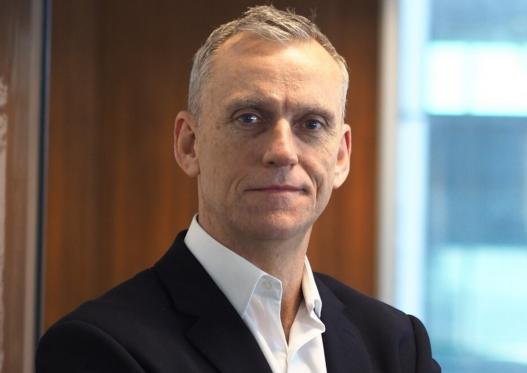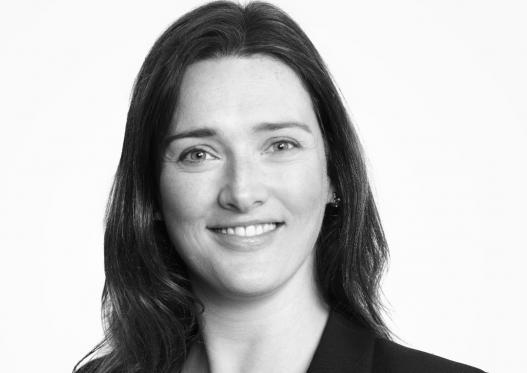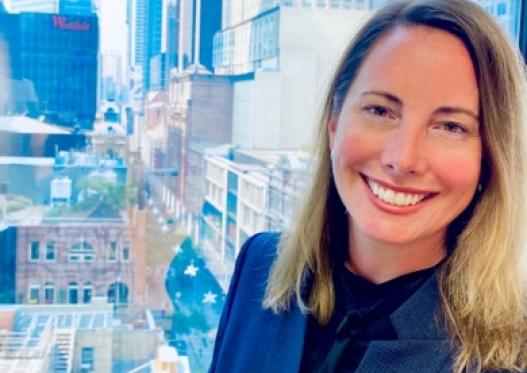It’s perhaps a little ironic that the acting global head of the Revolut app founded to help travellers with their money has not been able to fly to its HQ since taking the role.
Matt Baxby did visit London when he became CEO of the Australian arm of the business last February - but that was before COVID-19 shut down international travel almost overnight.
Matt, a long-standing FINSIA member who became a Senior Fellow and Chartered Banker last year, will be part of FINSIA’s prestigious Economic Indicators panel next month.
Here in the latest InFinance, Matt speaks about the steep learning curve he has been on at the “financial services super app” that has recently earned a valuation of US$5.5bn, making it one of the most valuable fintechs in the world.
When Matt did visit London last February, Revolut had a policy that allowed new hires to visit its HQ.
“But it wasn't long after that the music stopped on international travel,” says Matt, whose mandate to establish Revolut in Australia grew five months ago when he stepped into the interim global banking CEO role covering seven major markets including the UK, Central and Eastern Europe, Western Europe, the US, Singapore, Japan and Australia.
“We had to rethink our sequencing in a lot of ways, straight up. But the post COVID trend is an acceleration of the digitisation of people's lives.
“Businesses have had to think about their digital business models more, but fintechs like Revolut are really well-placed to meet that.
“What it meant for us was we really put the foot down on our drive towards becoming a financial super app, which is the phrase we’ve coined for the platform that lets people manage their entire financial life in one place.
“We'd built features out across transactions and payments, as well as wealth and lifestyle areas.
“That means being able to buy, sell or hold alternative asset classes such as cryptocurrency, or gold and silver. Share trading using fractional ownership is a really popular feature in the UK and Europe as well.
“In Australia, in the space of four months, in addition to FX and payments, we launched the crypto and commodities feature, the Revolut junior app designed to teach young people good financial skills, a donations feature, our rewards feature as well as budgeting tools and insights.
“That’s really important in the context of an environment where people are watching their money pretty carefully.”
While ongoing low interest rate environments has led to a greater interest in cryptocurrency, it is as Matt says, a great example of a sector that's not particularly well-served in Australia.
“It's pretty inaccessible, quite expensive. And I think part of the reason it's probably got some momentum lately. It's just become a bit more mainstream with fund manager's starting to take allocations of it.
“I think the average Australian probably wonders how to actually get access and that’s one of the places we come in.
“We haven't come to market with a traditional banking model that takes deposits and then loans them out.
"Ours is built around being relevant to consumers and meeting a clear need.”
One clear advantage Revolut had was that it has already built up more than 13 million customers globally over its first five years. Though there were clear challenges too, including building a team up from three to more than 20 - without meeting face to face in many cases until just before Christmas when the borders opened.
“That took less than 12 months. Eighteen months ago, you wouldn't have even contemplated operating in that way,” he says.
“But through necessity, you make it work. And if anything, the team's as cohesive and energised as any team I've worked with.
“It actually led to us recruiting out of cities other than where we thought we were going to be headquartered. We have an office in Melbourne though that was hardly used in the first 12 months. But we now have people on the ground in Sydney, Melbourne and Brisbane because that is where the talent was. One of our operations managers moved up to Singapore and she continues to be a part of the team as well.”
That Matt had to build a team and roll out the new features in such a short space of time was one of the attractions to the fintech.
“Having worked in the Aussie market in both challenger roles and more traditional banking, I could see the opportunity,” he said.
“I'd seen the success that Revolut had achieved in Europe. And there wasn’t anything like Revolut here.
“The second was an ability to have personal impact.
“Contrast fintechs to a more traditional bank where accountability might not be as clear, with a fairly heavy committee structure and slow decision-making. And they're at the mercy of legacy technology and everything that comes with that.
“Being able to have personal impact in an environment like Revolut, bringing the experience I've had in banking and challenger banking to a brand new business was an important driver.
“The third thing that attracted me was learning and development.
“I probably learned more from my 30-year-old head of operations who's only ever worked in technology.”
Despite this, Matt acknowledges the need for fintechs to have the right complement of talent with core banking skills.
“It's really important,” he says.
“Having been in the global role, what we go looking for in CEOs of new expansion markets as we bring them on is they need to have the right financial services credentials.
“They need to be credible with regulators. They need to understand, deeply, capital liquidity and compliance and three lines of defence and all the foundations of banking.
“The reality is, while we’re more technology oriented, we're also working in a sector that's probably the most regulated of all.
“And if we don't get that right, customers can be put in harm's way. And, overall, the business progression can be slowed down.
“So, definitely, Revolut wants those skills.
“I guess the secret sauce is blending that with people who have experience in technology or challenger environments, or turnarounds, because Revolut does work at a very different pace.”
Qualified lawyer Matt, who joined FINSIA forerunner the Securities Institute of Australia in 2001 and a passionate supporter of professionalism, says: “It served me really well as my career developed in the financial services sector.
“That’s the important role FINSIA has to play - the professionalisation of banking.
“It’s the reason I did the Chartered Banker. It's so well credentialed in the UK and carries real weight. And my hope is that we see that momentum continue to build in Australia.”
Looking forward with a nod to Revolut’s origins, Matt says he hopes to see some international travel - maybe to places like Japan.
Though an enduring trend is the very significant spike in online shopping, including with offshore merchants.
“One of the enduring trends we're going to see is the continued globalisation of e-commerce. It doesn't matter where the merchant is especially as deliveries become seamless and people are willing to shop anywhere.”









